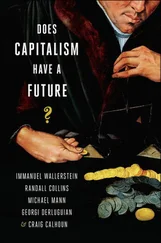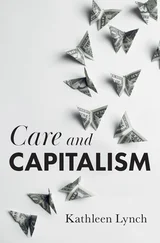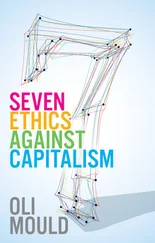Another factor is US policy elites’ support for elite-dominated representative government in Third World countries as a better method of domination in a globalising world, using methods that appear more consensual than authoritarian: William I. Robinson, Promoting Polyarchy: Globalization, US Intervention, and Hegemony (Cambridge: Cambridge University Press, 1996).
Alfie Kohn, The Brighter Side of Human Nature: Altruism and Empathy in Everyday Life (New York: BasicBooks, 1990).
Michael Argyle, The Psychology of Happiness (London: Methuen, 1987).
Relevant here is Paul L. Wachtel, The Poverty of Affluence: A Psychological Portrait of the American Way of Life (Philadelphia: New Society Publishers, 1989).
Walter LaFeber, Michael Jordan and the New Global Capitalism (New York: Norton, 1999).
Principled libertarians support unrestricted immigration.
Stephen Marglin, “What do bosses do? The origins and functions of hierarchy in capitalist production,” Review of Radical Political Economics, Vol. 6, No. 2, Summer 1974, pp. 60-112.
Community-based systems should be distinguished from private charities. The key distinction concerns who controls the provision.
Ralph Miliband, The State in Capitalist Society (London: Weidenfeld and Nicolson, 1969). A specific example of the way state-led transformation discourages popular initiative is given by Ed Brown, “Nicaragua: Sandinistas, social transformation and the continuing search for a popular economic programme,” Geoforum, Vol. 27, No. 3, 1996, pp. 275-295.
Martin P. Davidson, The Consumerist Manifesto: Advertising in Postmodern Times (London: Routledge, 1992).
On status and economics, see Robert H. Frank, Choosing the Right Pond: Human Behavior and the Quest for Status (New York: Oxford University Press, 1985).
Sylvia Walby, Patriarchy at Work: Patriarchal and Capitalist Relations in Employment (Cambridge: Polity Press, 1986).
Cynthia Cockburn, Machinery of Dominance: Women, Men and Technical Know-How (London: Pluto Press, 1985).
On the state and the military, see Ekkehart Krippendorff, Staat und Krieg: Die Historische Logik Politischer Unvernunft (Frankfurt: Suhrkamp, 1985), as reviewed by Johan Galtung, “The state, the military and war,” Journal of Peace Research , Vol. 26, No. 1, 1989, pp. 101-105; Bruce D. Porter, War and the Rise of the State: The Military Foundations of Modern Politics (New York: Free Press, 1994); Charles Tilly, Coercion, Capital, and European States, AD 990-1992 (Cambridge MA: Blackwell, 1992).
On grassroots strategy against war, see Brian Martin, Uprooting War (London: Freedom Press, 1984).
Mary Kaldor, New and Old Wars: Organized Violence in a Global Era (Cambridge: Polity Press, 1999).
Karl Liebknecht, Militarism (New York: B. W. Huebsch, 1917); Martin Shaw (ed.), War, State and Society (London: Macmillan, 1984), especially Michael Mann, “Capitalism and militarism,” pp. 25-46.
An excellent attempt to explain the US military involvement in the Vietnam war as in the interests of capitalism is given by Paul Joseph, Cracks in the Empire: State Politics in the Vietnam War (Boston: South End Press, 1981), but his material suggests that the interests of state managers took priority over the interests of capitalism.
Henry Jacoby, The Bureaucratization of the World (Berkeley: University of California Press, 1973).
On bureaucracies as similar to authoritarian states, see Deena Weinstein, Bureaucratic Opposition: Challenging Abuses at the Workplace (New York: Pergamon Press, 1979).
On nonviolent action within and against bureaucracies, see Brian Martin, Sharon Callaghan and Chris Fox, with Rosie Wells and Mary Cawte, Challenging Bureaucratic Elites (Wollongong: Schweik Action Wollongong, 1997.
L. S. Stavrianos, The Promise of the Coming Dark Age (San Francisco: Freeman, 1976).
See chapter 11.
Geoffrey Ostergaard and Melville Currell, The Gentle Anarchists: A Study of the Leaders of the Sarvodaya Movement for Non-Violent Revolution in India (Oxford: Clarendon Press, 1971).
For impressive evidence from psychological experiments, see David Kipnis, The Powerholders (Chicago: University of Chicago Press, 1981, 2nd edition); David Kipnis, Technology and Power (New York: Springer-Verlag, 1990).
For an insightful critique of Marxism-Leninism, see Michael Albert, What Is to Be Undone: A Modern Revolutionary Discussion of Classical Left Ideologies (Cambridge, MA: Porter Sargent, 1974).
This classless society is called communism, but this meaning of the word “communism” has been fatally corrupted by its association with “actually existing socialism,” namely the actual societies ruled by communist parties.
Examples include Bolivia, Burma, East Timor, Greece, Hungary, Malaya, Palestine and South Africa.
Prominent examples are China, Soviet Union and Vietnam.
See, for example, Tony Cliff, State Capitalism in Russia (London: Pluto Press, 1955). The category “state capitalism” is contentious given the significant differences with monopoly capitalism.
Carl Boggs, Social Movements and Political Power: Emerging Forms of Radicalism in the West (Philadelphia: Temple University Press, 1986).
Robert Michels, Political Parties: A Sociological Study of the Oligarchical Tendencies of Modern Democracies (New York: Dover, 1915 1959).
Benjamin Ginsberg, The Consequences of Consent: Elections, Citizen Control and Popular Acquiescence (Reading, MA: Addison-Wesley, 1982). See also Benjamin Ginsberg, The Captive Public: How Mass Opinion Promotes State Power (New York: Basic Books, 1986).
Charles Derber, William A. Schwartz and Yale Magrass, Power in the Highest Degree: Professionals and the Rise of a New Mandarin Order (New York: Oxford University Press, 1990); Alvin W. Gouldner, The Future of Intellectuals and the Rise of the New Class (London: Macmillan, 1979).
For withering critiques, see Max Nomad, Rebels and Renegades (New York: Macmillan, 1932); Max Nomad, Aspects of Revolt (New York: Bookman Associates, 1959).
George Konrád and Ivan Szelényi, The Intellectuals on the Road to Class Power (Brighton: Harvester, 1979).
Читать дальше

![Brian Jacques - Martin the Warrior [Redwall 6]](/books/128385/brian-jacques-martin-the-warrior-redwall-6-thumb.webp)










